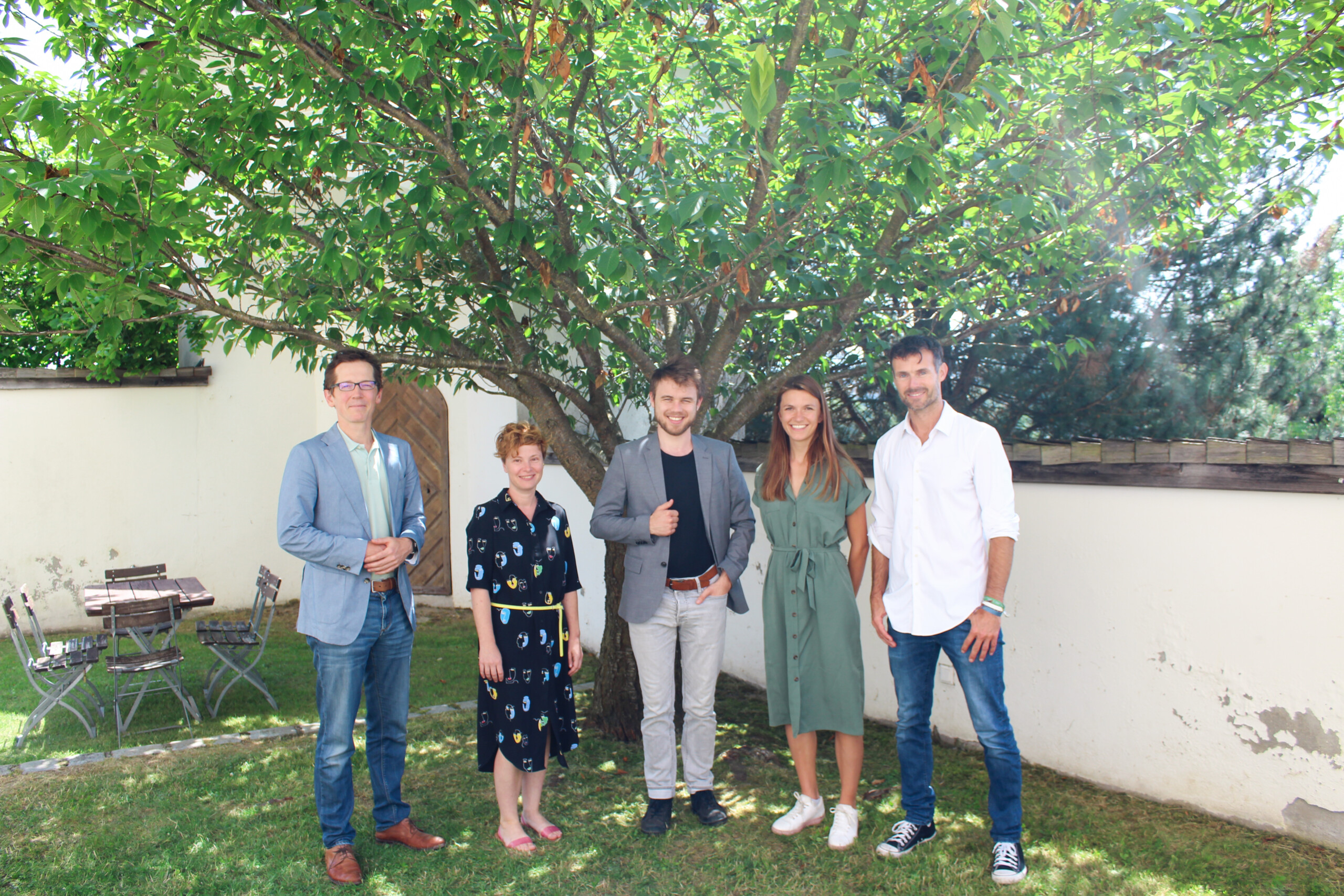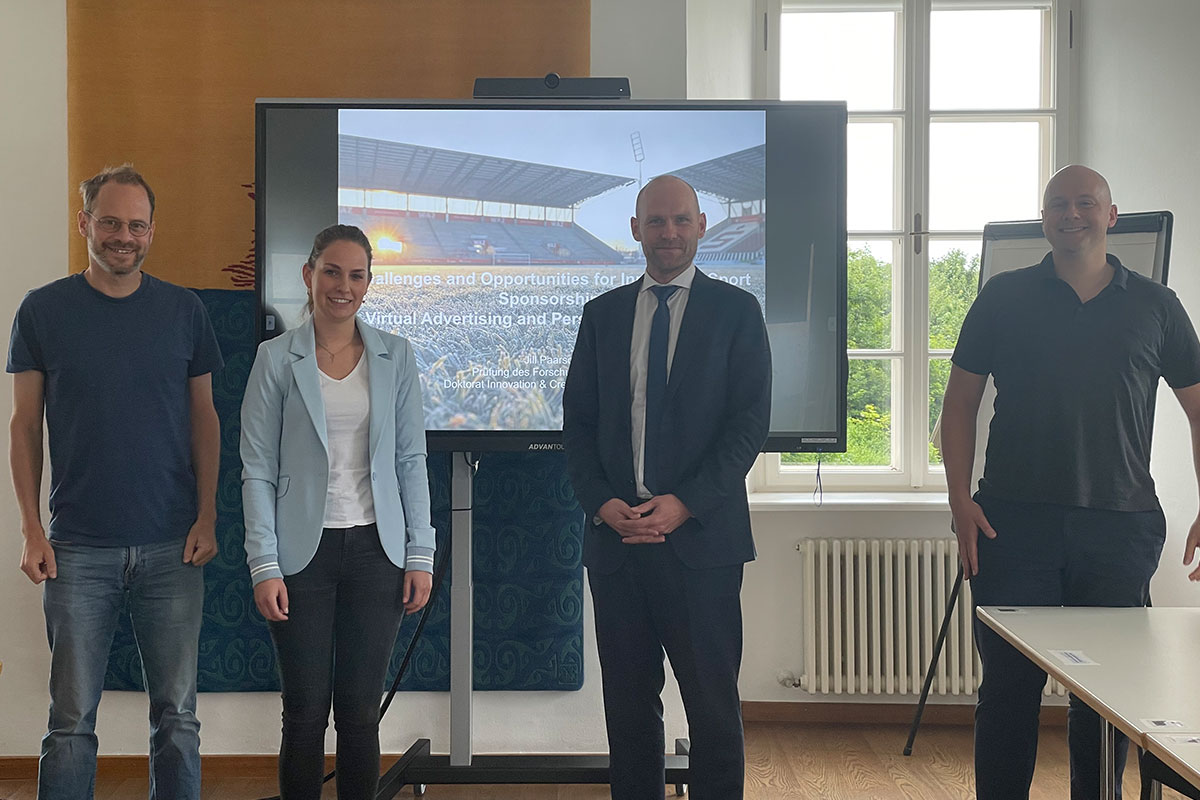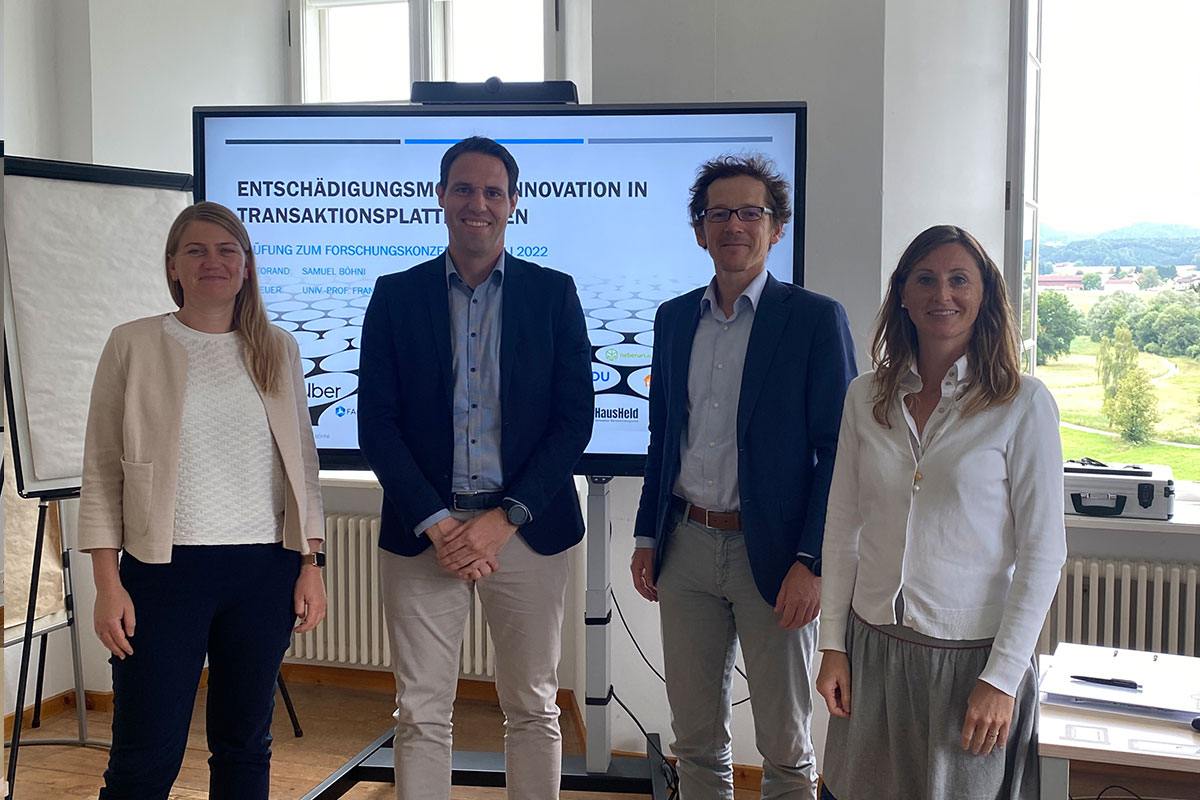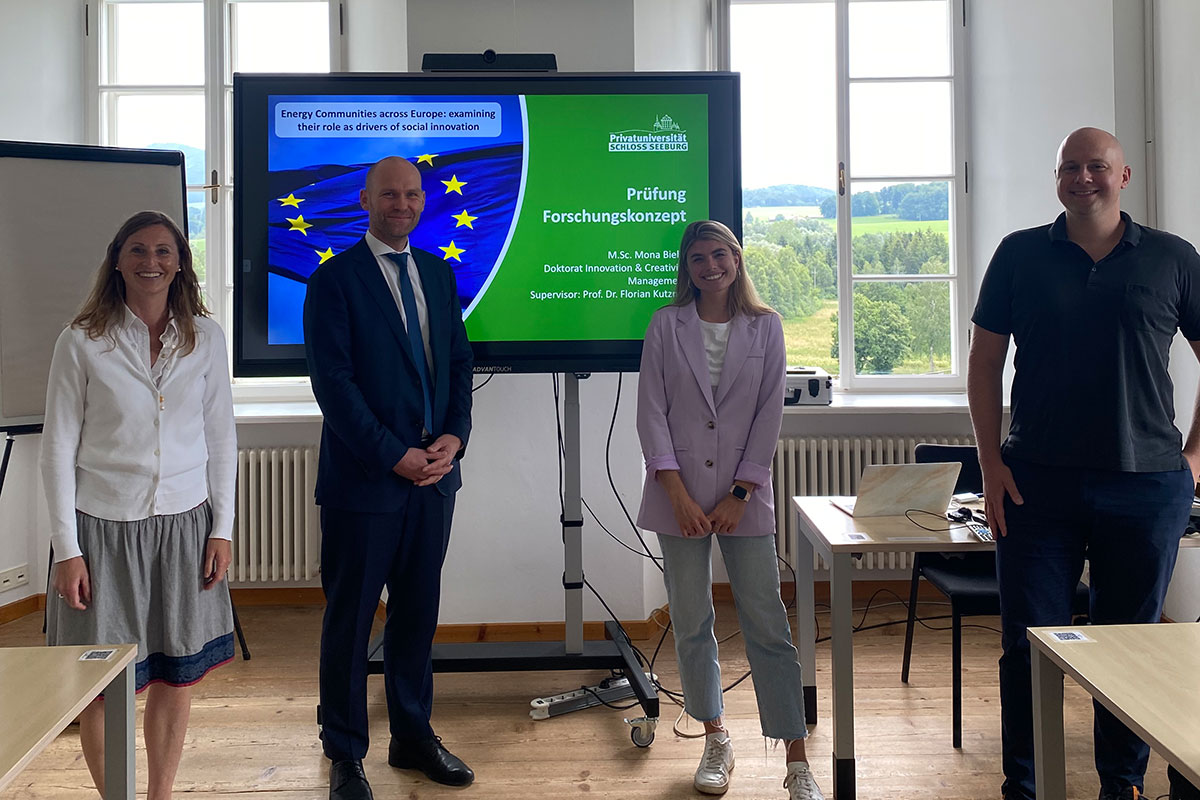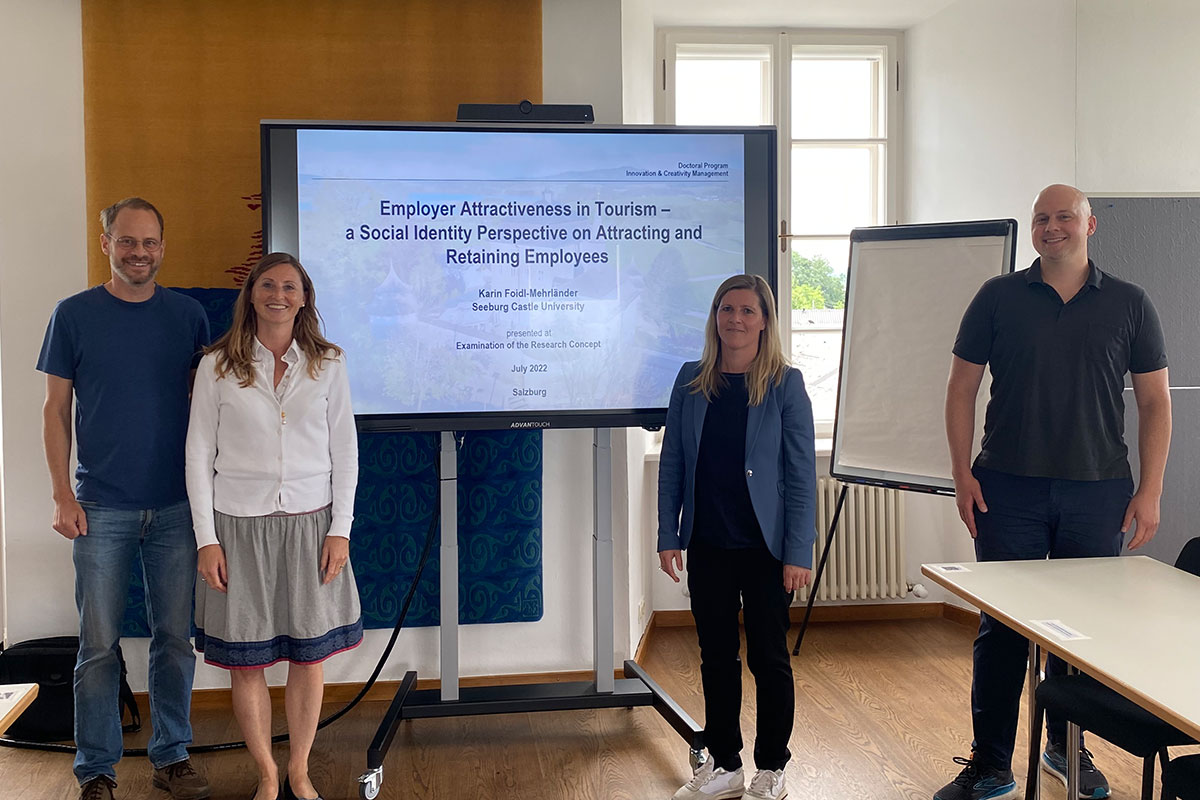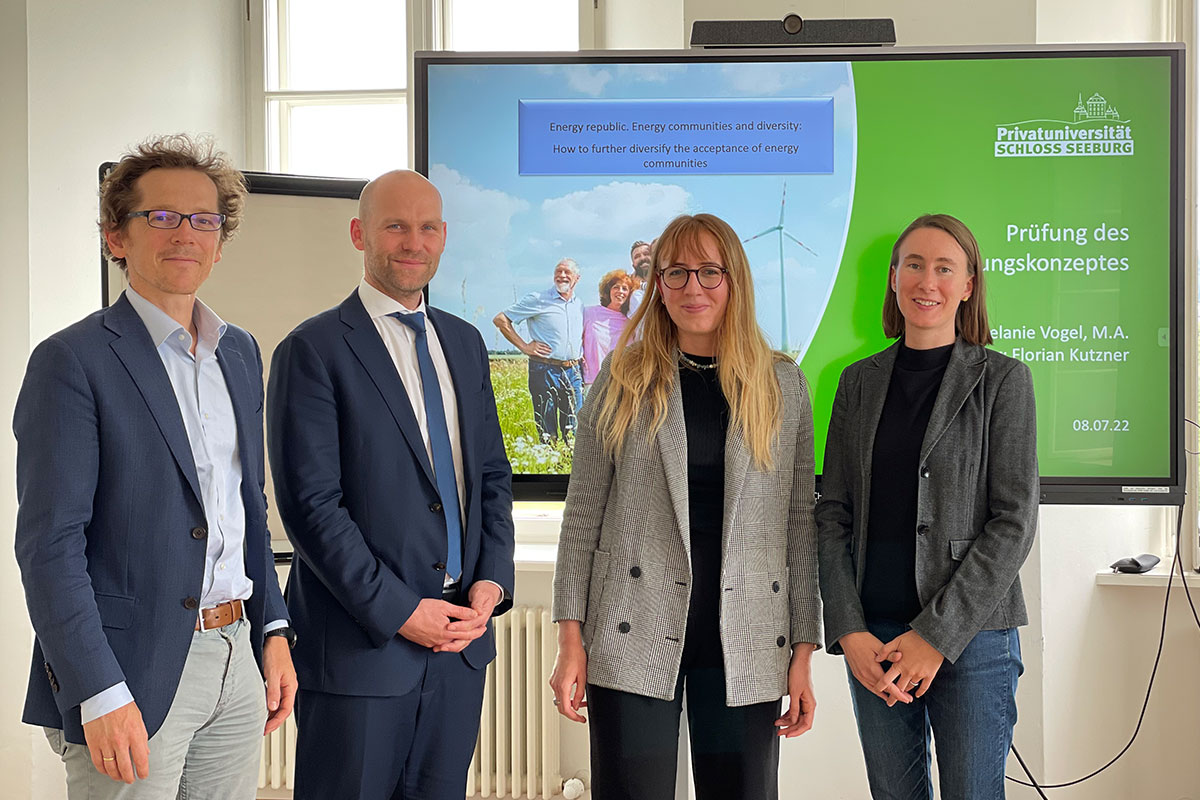Professur für Innovationsmanagement
Google H-Index [output_hindex author_id=”4Ari0dIAAAAJ&hl” js_output=”false”]

Univ.-Prof. Dr. Franz Huber
Telefon: +43 6212 2626 32
E-Mail: franz.huber@uni-seeburg.at
Lebenslauf Univ.-Prof.-Dr. Franz Huber
| Persönliche Angaben | |
| 14.02.1981 | Geboren in Oberndorf bei Salzburg (Österreich) |
| Akademischer Werdegang | |
| Seit 03/2016 | Universitätsprofessor für Innovationsmanagement an der Privatuniversität Schloss Seeburg, Seekirchen/Salzburg, Österreich |
| Seit 09/2014 | Assoziierter Professor für Innovationsmanagement an der Privatuniversität Schloss Seeburg, Seekirchen/Salzburg, Österreich |
| Seit 10/2013 | Senior Research Associate am Centre for Innovation Research. University of Stavanger (Norwegen) |
| 10/2017-06/2022 | Dekan der Fakultät Management an der Privatuniversität Schloss Seeburg, Seekirchen/Salzburg, Österreich |
| 11/2013-10/2017 | External Examiner für die Masterstudiengänge MSc Management, MSc Innovation, Entrepreneurship and Management, und MSc International Health Management. Imperial College Business School (UK) |
| 10/2011-08/2014 | Senior Lecturer für Strategy and Innovation, University of Southampton, Management School, UK. Senior Lecturer ab 05/2013. Director des Centre for Innovation and Enterprise ab 05/2013. Studiengangsleiter für den MSc in Global Enterprise and Entrepreneurship und den MSc in Strategy and Innovation bis 09/2013. |
| 10/2011-09/2013 | Postgraduate Certificate in Academic Practice. 30 ECTS, University of Southampton. Fellow der Higher Education Academy |
| 09/2010-09/2011 | ESRC (Economic and Social Research Council) Management and Business Development Fellow, The Open University Business School (UK). ESRC Grant RES-073-27-0031 |
| 10/2006-08/2010 | Ph.D. Studien und Lehrbeauftragter in Wirtschaftsgeographie, Department of Geography, University of Cambridge, St. John’s College (UK). Gates Cambridge Scholarship |
| 10/2003-03/2006 | Masterdiplomstudium in Soziologie, Paris Lodron Universität Salzburg (Österreich) |
| 10/2000-07/2005 | Masterdiplomstudium in Geographie, Paris Lodron Universität Salzburg (Österreich) |
| 08/2005-12/2005 | Visiting graduate student an der Duke University Graduate School, Department of Sociology, Durham (USA) |
| 09/2003/07/2004 | Erasmus-Student an der Oxford Brookes University, Oxford (UK). Diploma in Advanced Study |
| Aktivitäten in der Scientific Community |
|
| 2013 | Co-Stream Chair for the Networks and Innovation Track at the ISBE (Institute for Small Business and Entrepreneurship) Conference |
| Seit 10/2012 | Mitglied des ESRC Peer Review College des Britischen Forschungsförderungsfonds |
| Seit 2008 | Gutachtertätigkeit für Economic Geography, Environment and Planning A, Environment and Planning C, Growth and Change, Industry and Innovation, International Small Business Journal, Journal of Economic Geography, Journal of Economic and Social Geography (TESG), Papers in Regional Science, Regional Studies, Research Policy, Science and Public Policy, DRUID Konferenz, BAM Konferenz |
| Auszeichnungen |
|
| 2012 | Best Paper Award im Networks and Innovation Track, shortlisted for Best Conference Paper an der ISBE Institute for Small Business and Entrepreneurship Conference 2012, Dublin (Irland) |
| 2009 | Early Career Award 2009 von der Regional Studies Association |
| 2009 | Postgraduate Working Paper Prize von der Economic Geography Research Group, Royal Geographical Society (with IBG) |
| 2006 | Gates Cambridge Scholar, Cambridge Trusts/Bill & Melinda Gates Foundation |
Professur in Zahlen
Teammitglieder und betreute Dissertant:innen
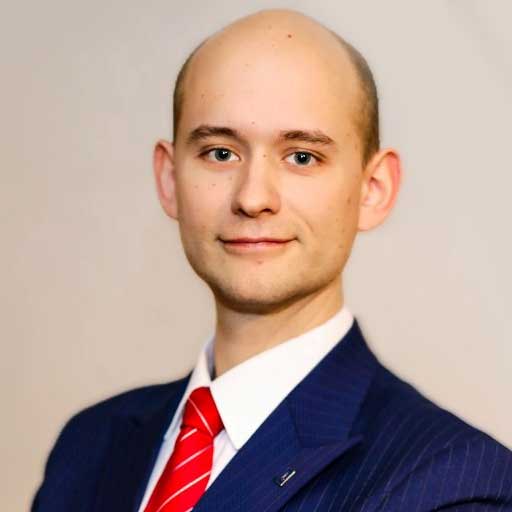
Dr. Josef Bergt
Externer Dissertant
„Digital Ownership, Psychological Dynamics, and Regulatory Implications of NFTs and Decentralized Gaming”
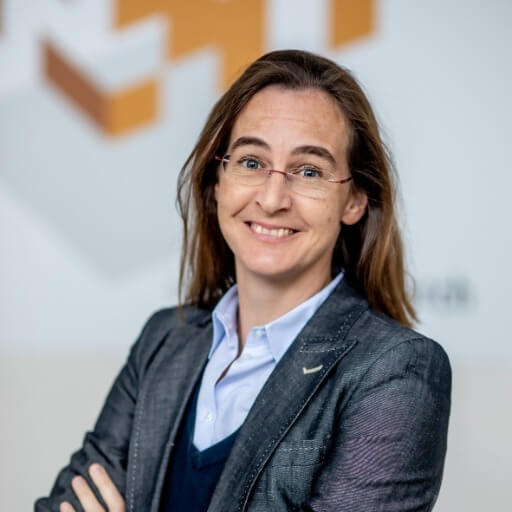
Elisabeth Häusler
Externe Dissertantin
“Towards a new framework exploring the Fuzzy Front End of data-intensive New Product Development”

Samuel Böhni
Externer Dissertant
„Vertrauensbildung in digitalen Plattformen durch innovative Entschädigungsmodelle“

Dilek Haupt
Externe Dissertantin
„Auswirkungen der Pandemie auf den Einsatz von internen und externen Ressourcen in Unternehmensberatungen“
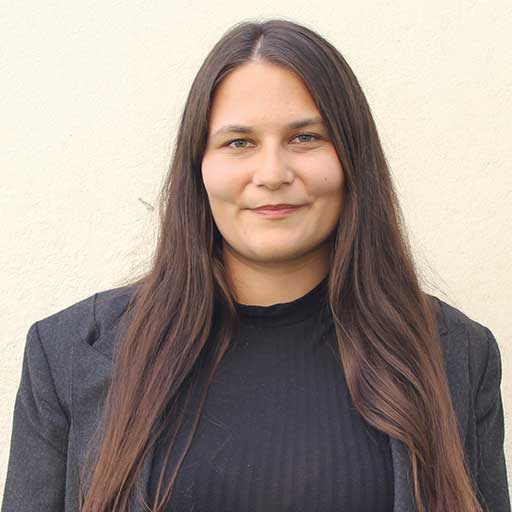
Magdalena Weber
Sandra Schäfer
Externe Dissertantin
Christoph Riederer
Externer Dissertant
Josef Bergt
Current research focuses on emerging markets of Decentralized Finance (DeFi) including the burgeoning domain of Non-Fungible Tokens (NFTs) in the context of emerging decentralized gaming markets.
- Characterization of NFTs in Decentralized Gaming
- Comparative Analysis of Centralized and Decentralized Markets
- Socio-Economic Drivers in Emerging Economies
- Digital Ownership: How does the (perception of) digital ownership through NFTs differ from conventional software licensing paradigms in the gaming industry?
- Psychological Factors: To what extent does the phenomenon of loss aversion influence consumer behavior and thereby the broader adoption of NFTs within decentralized gaming ecosystems?
- Confluence of Gaming and Gambling the role of NFT transferability across digital platforms in influencing the amalgamation of gaming and gambling sectors.
- Regulatory Conundrums: What public policy challenges arise from the facility to transmute NFTs into real-world financial assets?
Public Policy Implications: How can regulatory frameworks adapt to meet the sui generis challenges posed by the incorporation of NFTs in the gaming milieu?
Samuel Böhni
Samuel Böhni, M.A. Business Innovation HSG, ist Dozent an der OST – Ostschweizer Fachhochschule und Projektleiter am Institut für Innovation, Design und Engineering. Im Rahmen seiner Dissertation erforscht Samuel Böhni digitale Plattformen und deren Ertrags- und Transaktionsmodelle. Digitale Plattformen revolutionierten in den letzten Jahren weltweit die meisten Branchen und transformierten die Geschäftsmodelle der beteiligten Unternehmen. Die Zusammenarbeit zwischen Produzenten, Konsumenten, Dienstleistern und Plattform-Betreibern sowie die Transaktionen zwischen den Beteiligten stehen im Forschungsfokus von Samuel Böhni. In der Analyse führender Plattformen verschiedener Branchen sollen Transaktionsmuster identifiziert werden, welche zum Erfolg dieser Plattformen beigetragen haben.
Elisabeth Häusler
Nach der Matura an der Tourismusschule Klessheim in Salzburg absolvierte Elisabeth Häusler 2005 an der Fachhochschule Salzburg ihr Diplom in Telekommunikationstechnik und -systeme. Elisabeth Häusler ist als Leiterin der Forschungsgruppe “Human Motion Analytics” für das Geschäftsfeld Sport & Gesundheit bei Salzburg Research verantwortlich. Seit 2019 arbeitet sie an ihrem Doktorat zum Thema IoT New Product Development, der Entwicklung von smarten Produkten und dessen Herausforderungen. Ausgehend von der Domäne Sport, Fitness und Well-being werden mithilfe der Multiple Use Case Methode die frühe Innovationsphase mit einer Data Science Perspektive analysiert. Dies inkludiert die Phase der Entwicklung und Auswahl von Sensoren (off-shelf und Eigenentwicklung wie z.B. im Bereich Smart Textiles), die Datensammlung, die Datenanalyse bis hin zur wertgenerierenden Phase für die Unternehmen. Ergebnisse zeigen, dass das Technology Readiness Level der Sensoren und der Reifegrad des Produktkonzepts wesentliche Determinanten für Iterationen und somit Unsicherheit im Prozess sind. Zudem wird untersucht, welchen Einfluss die Herausforderung von Messgenauigkeit auf den Produktentwicklungsprozess hat.
Dilek Haupt
Magdalena Weber
Magdalena Weber ist wissenschaftliche Mitarbeiterin im Rahmen des Cowork4EU Projektes (cowork4.eu) und beschäftigt sich in ihrer Dissertation im Bereich der Organisationspsychologie mit neuen Arbeitsweisen und deren Auswirkungen auf verschiedene arbeitsbezogene Einstellungen. Der Titel ihrer Dissertation lautet “The two sides of new work: Chances and challenges and how to deal with them”. In einer Zeit, in der sich die Arbeitslandschaft rapide verändert, sind die Folgen von modernen Arbeitsweisen wie Homeoffice und Coworking von großer Bedeutung. Magdalena Weber erforscht das komplexe Zusammenspiel zwischen Individuen und den Umgebungen, in denen sie tätig sind. Die Forschungsergebnisse liefern wertvolle Erkenntnisse für die Praxis. Unternehmen können dadurch besser verstehen, wie neue Arbeitsweisen unter anderem die Leistung, die Zufriedenheit und das Wohlbefinden ihrer Mitarbeiter:innen beeinflussen. Dies ermöglicht es ihnen, präventive Maßnahmen zu entwickeln, um potenziell negative Auswirkungen zu minimieren und positive Aspekte zu verstärken. Darüber hinaus unterstützen die Erkenntnisse dabei, die richtigen Strategien zu identifizieren, um diese neuen Arbeitsweisen effektiv in den Arbeitsalltag zu integrieren.
Profil der Professur
- Innovationsnetzwerke
- innovationsbasierte Regionalentwicklung
- nachhaltiges Wirtschaften
- innovative Mobilität
- Sharing Economy
- blockchainbasierte Innovation
- Organisation und Management
- Verantwortungsvolles Wirtschaften
- Strategisches Innovationsmanagement
- Produkt- und Prozessentwicklung
- Fachseminar Innovation & Creativity Management
- Katharina Obenholzner, BA MA MA, Wissenschaftliche Mitarbeiterin – Dissertantin im Bereich Participation and Engagement in the Sharing Economy
- Elisabeth Häusler, DIin (FH), Dissertantin mit dem Dissertationsprojekt „Towards a new framework exploring the Fuzzy Front End of data-intensive New Product Development”, https://www.salzburgresearch.at/person/hausler-elisabeth
- Samuel Böhni, Dissertant mit dem Dissertationsprojekt „Vertrauensbildung in digitalen Plattformen durch innovative Entschädigungsmodelle“, https://www.ost.ch/de/person/samuel-boehni-1020
- Dilek Haupt, Diplombetriebswirtin (FH), Dissertantin mit dem Dissertationsprojekt „Auswirkungen der Pandemie auf den Einsatz von internen und externen Ressourcen in Unternehmensberatungen“
- Alumna: Dr. Julia Ezinger, BSc, MSc, ehemalige Dissertantin mit dem Dissertationsprojekt „Dwarfs & Giants – A qualitative analysis on how corporates can gain competitive advantage from engaging with startup”, https://www.linkedin.com:in/julia-ezinger/?originalSubdomain=de
- Sandra Schäfer, BSc, Msc, Dissertantin mit dem Dissertationsprojekt „Blockchain based decentralized crowds enabling Innovation“
https://www.linkedin.com:in/sandra-schaefer-26b593145 - Christopher Riederer, MSc, Dissertant mit dem Dissertationsprojekt „Neue Einsatzmöglichkeiten von digitalen Assets: Die Rolle von Non-Fungible Token (NFT) in Brand Communities“.
- Dr. Josef Bergt, LL.M, Dissertant mit dem Dissertationsprojekt „Digital Ownership, Psychological Dynamics, and Regulatory Implications of NFTs and Decentralized Gaming”
https://www.bergt.law/kanzlei/ueber-uns/prof-dr-josef-bergt-llm
- Open Innovation Kompetenzplattform Salzburg (mit ITG Salzburg, Salzburg Research, Universität Salzburg, FH Salzburg) – abgeschlossen.
- Mobilitätszentrum Salzburger Seenland (LEADER-Projekt)
- Diverse Auftragsprojekte im Bereich Ride-Sharing und Mikro-ÖV
Über Univ.-Prof. Dr. Franz Huber
Univ.-Prof. Dr. Franz Huber ist Professor für Innovationsmanagement an der Fakultät für Management der Privatuniversität Schloss Seeburg und Vorsitzender des Senates. Zuvor war er Leiter des Centre for Innovation & Enterprise an der University of Southampton Business School, und er arbeitete an der Open University Business School. Er hat sein Doktorat an der University of Cambridge als Gates Scholar absolviert.
Meine Buchempfehlung
From Frazzled to Fabulous: How to Juggle a Successful Career, Fatherhood, ‘Me-Time’ and Looking Good
Meine Podcastempfehlung
Mein Lieblingszitat
Das Familienleben ist ein Eingriff in das Privatleben (Karl Krauss)
Meine Tipp an Studierende
Meine größte Inspiration
Mein Lieblingsgründer
Awards und Auszeichnungen der Professur

Top Cited Article 2020-2021 „Open data for open innovation: managing absorptive capacity in SMEs” im Journal R&D Management
Publikationen und Transferleistungen der Professur
Schlüsselpublikationen
Grinevich, V., Huber, F., Karatas-Ozkan, M. & Yavuz, C. (2019). Green entrepreneurship in the sharing economy: bridging different institutional logics. Small Business Economics 52(4), pp. 859-876.
Fitjar, R. D., Huber, F., & Rodríguez-Pose, A. (2016). Not too close, not too far: testing the Goldilocks principle of ‘optimal’ distance in innovation networks. Industry and Innovation, 23(6), 465-487.
Huber, F. (2013). Knowledge-sourcing of R&D workers in different job positions: contextualising external personal knowledge networks. Research Policy 42(1), 167-179.
Wainwright, T., Huber, F., Stöckmann, C., & Kraus, S. (2023): Open data platforms for transformational entrepreneurship: Inclusion and exclusion mechanisms. International Journal of Information Management, 72, 102664.
Huber, F., Wainwright, T. & Rentocchini, F. (2020). Open data for open innovation: managing absorptive capacity in SMEs. R&D Management, 50(1), 31-46.
Grinevich, V., Huber, F., Karatas-Ozkan, M. & Yavuz, C. (2019). Green entrepreneurship in the sharing economy: bridging different institutional logics. Small Business Economics, 52(4), 859-876.
Fitjar, R. D., Huber, F. & Rodriguez-Pose, A. (2016). Not too close, not too far: testing the Goldilocks principle of ‚optimal‘ distance in innovation networks. Industry and Innovation, 23 (6), 465-487.
Fitjar, R. D. & Huber, F. (2015): Global pipelines for innovation: insights from the case of Norway. Journal of Economic Geography 15 (3), 561-583.
Huber, F. (2013). Knowledge-sourcing of R&D workers in different job positions: contextualising external personal knowledge networks. Research Policy 42 (1), 167-179.
Huber, F. (2013). Review – Creating a sustainable economy: an institutional and evolutionary approach to environmental policy. Edited by Gerardo Marletto. London and New York: Routledge. Economic Geography 89 (4), 431-433.
Huber, F. (2012). Do clusters really matter for innovation practices in information technology? Questioning the significance of technological knowledge spillovers. Journal of Economic Geography 12 (1), 107-126.
Huber, F. (2012). On the role and interrelationship of spatial, social and cognitive proximity: personal knowledge relationships of R&D workers in the Cambridge IT Cluster. Regional Studies 46 (9), 1169-1182.
Huber, F. (2012). On the socio-spatial dynamics of personal knowledge networks: formation, maintenance and knowledge interactions. Environment and Planning A 44 (2), 356-376.
Huber, F. (2012). Review: The economics of clusters. Lessons from the French Experience. Journal of Economic Geography 12 (2), 573-575.
Huber, F. (2009). Social capital of economic clusters: towards a network-based conception of social resources. Journal of Economic and Social Geography (TESG) 100 (2), 160-170.
Schafranek, M., Huber, F. & Werndl, C. (2008). The evolutionary foundation of Popper’s concept of three worlds: a neglected perspective of human ecological research in geography [German]. Geographische Zeitschrift 94 (3), 129-142.
Huber, F. (2007). Social Networks and Knowledge Spillovers. Networked Knowledge Workers and Localised Knowledge Spillovers. Frankfurt a. M.: Peter Lang.
Hecker, A. & Huber, F. (2017). The Future of the Management of Innovation: Trends and Challenges. In: Tang, M. & Werner, C. H. (Hrsg.): Handbook of the Management of Creativity and Innovation, World Scientific, S. 331–346.
Huber, F. & Fitjar, R. D. (2017). Beyond clusters in networks. In R. Shearmur, C. Carrincazeaux, & D. Doloreux (Eds.), Handbook on the geography of innovation. Cheltenham, UK and Northampton, USA: Edward Elgar.
Huber, F. & Werndl, C. (2016). Kontroversen zur Schätzung und Prognosefähigkeit am Beispiel globaler Klimawandel sowie wirtschaftswissenschaftlicher Vorhersagestudien. In R. Bachleitner, M. Pausch & M. Weichbold (Eds.), Wissenschaftstheoretische und methodologische Problemlagen empirischer Voraussagen und statistischer Vorhersagen. Grundlagen und Kontroversen erfahrungswissenschaftlicher Prognoseverfahren. Berlin: Springer.
Huber, F. & Bachleitner, R. (2006). On the role of tourism in the city and the province of Salzburg. In C. Stroppa (Ed.), Turismo e Società. Contributi per un‘Analisi Sociopsicologica. Rome: Aracne.
Jekel, T. & Huber, F. (2005). Barockes Salzburg. Zur Normalisierung von Raumbildern. In M. Flitner& J. Lossau (Eds.), Themen-Orte. Zur Produktion und Durchsetzung von Raumbildern. Berlin: LIT.
Huber, F. & Jekel, T. (2004). Barocke Hülle – postmoderne Fülle? Politisch umkämpften Altstadtbilder am Beispiel Salzburgs. In H. Dachs & R. Floimair (Eds.), Salzburger Jahrbuch für Politik 2003. Wien: Böhlau.
Huber, F. (2005). Analysing Social Networks within the Context of Localised Knowledge Spillovers. In E. Buchinger, B. Dach, T. Roediger-Schluga, C. Seibt & P. Wagner (Eds.), Networks as a form of governance of technological innovations. Report. Vienna: Austrian Research Centers Seibersdorf.
Schrattenecker, W., Sulzer, C., Huber, F., Hochleitner, G. & D. Preining (2004). Verankerung der Nationalparkidee bei touristischen Institutionen und Akteuren der ‚Ferienregion Nationalpark Hohe Tauern’. In I. Mose & U. Vilsmaier (Eds.), Zur Implementierung der Nationalpark-Idee in Landwirtschaft, Tourismus und Bildung. Ergebnisse eines Studienprojektes in der Nationalparkregion Hohe Tauern. Salzburg: Universität Salzburg.
Obenholzner, K., Baines, L., Grinevich, V., Huber, F. (2020 forthcoming). Adaptation and change of geographically expanding Sharing Economy ecosystems. Paper presented at the 2020 British Academy of Management Conference(BAM), online.
Huber, F. (2018). Open data for open innovation: managing skills and capabilities in SMEs im Stream Big data, open data and the digital transformation. DRUID 2018 Conference Copenhagen, Copenhagen, Denmark.
Grinevich, V., Huber, F. & Karatas-Ozkan, M. (2017). Green logic and the sharing economy. Academy of Management Annual Meeting Proceedings 2017, Atlanta, USA.
Huber, F., Rentocchini, F. & Wainwright T. (2016). Open Innovation: revealing and engagement in open data organizations. SPRU 50th Anniversary Conference, Brighton, UK.
Grinevich, V., Huber, F., Karatas-Ozkan, M., Yavuz, C. (2016). Multiplicity of institutional logics and green agenda in the sharing economy. 3rd International Workshop on the Sharing Economy, Southampton, UK.
Fitjar, R. & Huber, F. (2016). Recipies of proximities for innovation: Exploring equifinal and asymetric combinations of proximity types via qualitative comparative analysis. 56th ERSA Conference, Vienna, Austria.
Huber, F. (2016). Orchestrating innovation and upscaling in the sharing economy. 56th ERSA Conference, Vienna, Austria.
Grinevich, V. & Huber, F. (2016). Organising upscaling in the sharing economy: a typology of social-technical enablers and constraints. EGOS Colloqium, Naples, Italy.
Grinevich, V. & Huber, F. (2016). Upscaling in the sharing economy: insights from the UK. 1st International Workshop on the Sharing Economy, Utrecht, The Netherlands.
Huber, F. (2016). Not too close, not too far: towards an empirical test of the Goldilocks Principle of non-geographical distance in collaboration networks for innovation. 4th Global Conference on Economic Geography 2015, Oxford, UK.
Huber, F. (2016). Not too close, not too far: towards an empirical test of the Goldilocks principle of non-geographical distance in collaboration networks for innovation. DRUID Conference 2015, Rome, Italy.
Fitjar, R. D., Huber, F. & Rodriguez-Pose, A. (2015). Not too close, not too far: testing the Goldilocks principle of optimal distance in innovation networks. Fourth Global Conference on Economic Geography 2015. Oxford, UK.
Fitjar, R. D., Huber, F. & Rodriguez-Pose, A. (2015). Not too close, not too far: towards an empirical test of the Goldilocks Principle of non-geographical distance in collaboration networks for innovation. Fourth Global Conference on Economic Geography 2015. Oxford, UK.
Fitjar, R. D. & Huber, F. (2014). Global pipelines for innovation in Norway: personal networks, formal networks, global buzz with strangers and virtual buzz. Geography of Innovation Conference 2014, Utrecht University, The Netherlands.
Huber, F. (2013). Entrepreneurial green innovation out of motorsport. Institute for Small Business and Entrepreneurship Conference, Cardiff, UK.
Huber, F. (2013). Global pipelines for innovation in Norway: personal networks, formal networks, global buzz with strangers and virtual buzz. British Academy of Management Conference, Liverpool, UK.
Huber, F. (2012). Knowledge-sourcing in innovative clusters: contextualising external personal knowledge networks. ISBE Institute for Small Business and Entrepreneurship Conference, Dublin, Ireland.
Huber, F. (2012). Can Motorsport Valley drive us green?. Association of American Geographers Annual Meeting, New York, USA.
Huber, F. (2011). The transition towards sustainability: can motorsport drive us green? Royal Geographical Society Annual International Conference, London, UK.
Huber, F. (2011). Contextualising the role of extra-firm personal networks as a source of work-related knowledge. Organisational Learning, Knowledge and Capabilities (OLKC) Conference 2011, Hull, UK.
Huber, F. (2011). On the role and interrelationship of spatial, social and cognitive proximity: personal knowledge networks of R&D workers in the Cambridge IT Cluster. Royal Geographical Society Annual International Conference, London, UK.
Huber, F. (2010). Do clusters really matter for innovation practices in information technology? Questioning the significance of technological knowledge spillovers. DRUID Summer Conference 2010, London, UK.
Huber, F. (2009). Spatial, social and cognitive proximity in networks: knowledge workers in the Cambridge IT Cluster. Deutscher Geographentag 2009, Vienna, Austria.
Huber, F. (2009). Knowledge workers in the Cambridge IT Cluster: knowledge spillovers through personal networks? Regional Studies Association Annual Conference, Leuven, Belgium.
Huber, F. (2008). Personal networks in the Cambridge IT Cluster: a critical investigation of knowledge interactions. Royal Geographical Society Annual International Conference 2008, London, UK.
Huber, F. (2007). Social capital: conceptual problems and actor-centred perspectives of social networks and social resources. Deutscher Geographentag 2007, AK Geographie und Gesellschaftstheorie, Bayreuth, Germany.
Huber, F. (2007). Going beyond the ‘thematic turn‘ of relationality? The scope of concepts and methods of social network analysis. Association of American Geographers Annual Meeting 2007, San Francisco, USA
Huber, F. (2015). Social capital, networks and innovation. Smartspec Thematic Workshop. Networks & Connectivity for Smart Specialisation. Orkestra-Basque Institute of Competitiveness, San Sebastian, Spain, October 2 2015.
Huber, F. (2015). Invited workshop presentation: Can motorsport drive us green?. ESRC Seminar Series: Green Innovation – Making it Work. Nottingham Business School, Nottingham Trent University, UK, April 22 2015.
Huber, F. (2014). Invited workshop presentation: On the socio-spatial dynamics of inter-personal knowledge networks. Social Dynamics of Innovation Networks Workshop, Faculty of Management, Science and Technology, Open Universitaet in the Netherlands, Chemelot, The Netherlands, May 12 2014.
Huber, F. (2013). Invited seminar presentation: Global knowledge pipelines for innovation in Norway. Manchester Institute of Innovation Research, Manchester Business School, The University of Manchester, Manchester, UK, November 18 2013.
Huber, F. (2013). Invited workshop presentation: Can motorsport valley drive us green? Stavanger Centre for Innovation Research, Stavanger, Norway, September 6 2013.
Huber, F. (2013). Invited seminar presentation: Can motorsport valley drive us green? Nottingham University Business School, Nottingham, UK, May 7 2013.
Huber, F. (2012). Invited workshop presentation: Knowledge networking in innovative clusters: important for whom? Knowledge Networking: Exploring Social Dynamics of Innovation Conference. RWTH Aachen University, Germany, December 8 2012.
Huber, F. (2012). Invited seminar presentation: Knowledge networking in innovative clusters: insights from the Cambridge IT Cluster. Work Foundation, London, UK, November 22 2012.
Huber, F. (2012). Invited seminar presentation: Can motorsport valley drive us green? The spatiality of the enablers of and barriers to cleantech. CIRCLE Centre for Innovation, Research and Competence in the Learning Economy, Lund, Sweden, November 22 2012.
Huber, F. (2012). Knowledge flows in economic clusters: the limits of relational thinking. 11th Symposium for Economic Geography, Rauischholzhausen, Germany, April 29, 2011.
Huber, F. (2010). Invited talk: On the role and interrelationship of spatial, social and cognitive proximity: personal knowledge networks of R&D workers in the Cambridge IT Cluster. Experience the Creative Economy. Martin Prosperity Institute, Toronto, Canada, June 23 2010.
Huber, F (2009). Invited talk: Does the cluster matter for innovation practices of knowledge workers? Lessons from the Cambridge IT Cluster. Stavanger Innovation Summit, Stavanger, Norway, June 16 2009.
Huber, F. (2008). Personal networks and knowledge flows. On the role of proximity in the Cambridge IT Cluster. 5th Annual Cluster Research Workshop 2008 Networks in Society and Economy, Department of Geography, University of Cambridge, UK, April 30 2008.
Huber, F. (2007). Invited talk: Personal networks and knowledge flows in Clusters. Absorption, leakage and spatial dimensions in the Cambridge IT Cluster. Library House Science Club, Cambridge, UK, April 30 2008.
Huber, F. (2007). Invited talk: The social network foundation of knowledge spillovers in industrial clusters. An investigation of mechanisms in Cambridge. Discussion of doctoral students work. ESRC Doctoral Workshop. Centre for Entrepreneurship, Durham Business School, Durham University, UK, March 22 2007.
Huber, F. (2005). Invited talk: Social network analysis: theoretical backgrounds and analysis of knowledge flows. ICT&S Center (Advanced Studies and Research in Information and Communication Technologies & Society), University of Salzburg, Austria, May 2 2005.
Huber, F., Schafranek, M. & Werndl, C. (2005). Invited guest lecture: On self-organisation in social systems. Course Technology Assessment, Department of Communication Science, University of Salzburg, Austria, April 19 2005.
Huber, F. (2004). Social network analysis: theoretical backgrounds for meaningful interpretation, application for researching localised knowledge spillovers. Austrian Research Centers Seibersdorf, Seibersdorf, Austria, April 19 2005.




